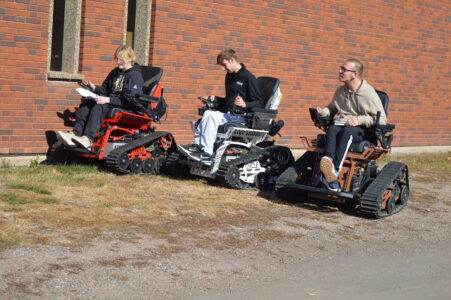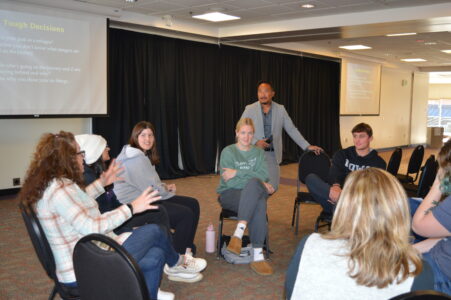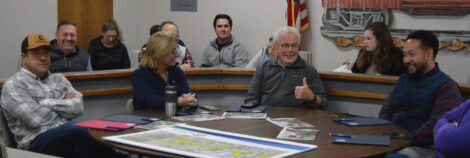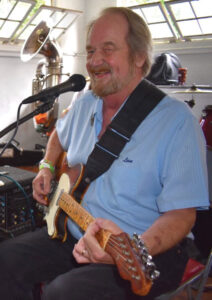Taking the refugee journey
Event at SMSU highlights experiences of Cambodian refugees
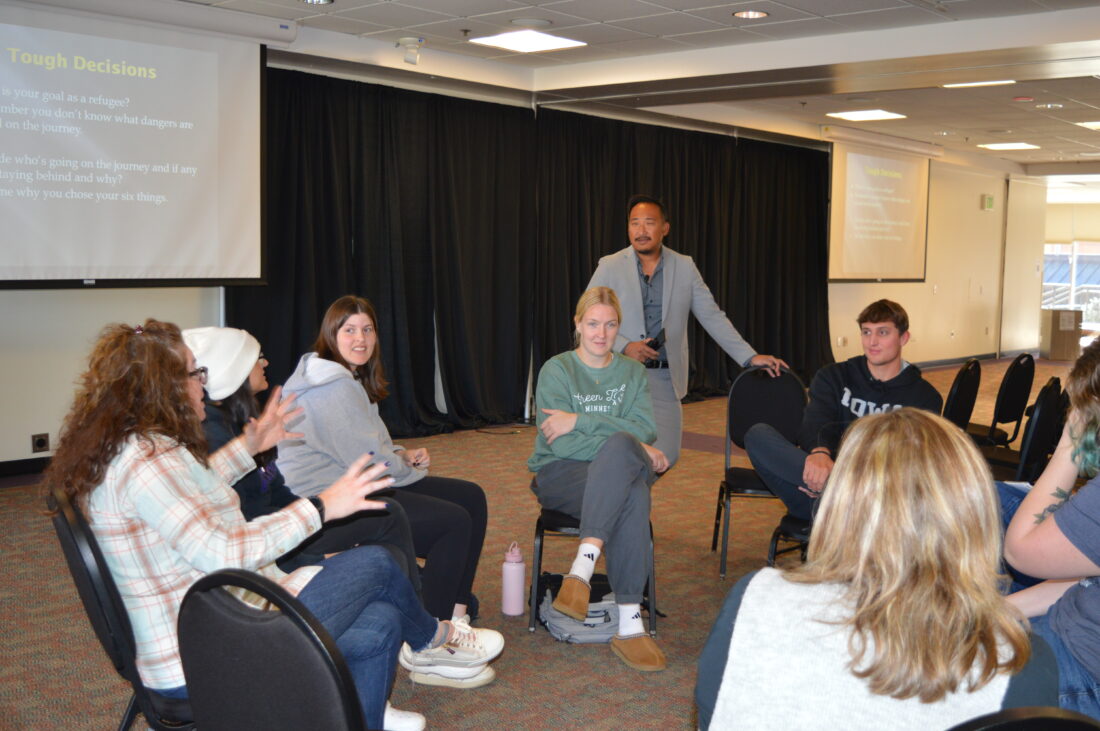
Participants in a refugee experience simulation event at Southwest Minnesota State University told presenter Sambath Ouk how their groups decided what to take with them on a journey to safety. Each group was given just minutes to choose supplies, and whether any group members would stay behind.
MARSHALL — It was a high-pressure situation. Groups of students at Southwest Minnesota State University had just been asked to imagine that they were fleeing war in their home country. The students, role-playing as family groups, had just two minutes to decide which family members would make the journey, and who would stay behind.
“These decisions are tough,” said presenter Sambath Ouk. “Two minutes is not a very long time to talk about all of this.” But those were just some of the decisions faced by refugees fleeing Cambodia in the 1970s, he said.
Ouk spoke to SMSU students on Thursday, during a refugee simulation event hosted by the university’s social work program. In different exercises, participants learned a little about what refugees experience on their journey to life in a new country.
“It’s important to be able to have that experiential learning for students,” said Amber Kinner-Alakahoon, assistant professor of social work at SMSU.
The people taking part in a simulation exercise Thursday morning included education and social work students at SMSU.
Ouk said he developed the refugee simulation by interviewing people who fled the “Killing Fields” of Cambodia under the Khmer Rouge regime. Ouk’s own family survived the Killing Fields and immigrated to the U.S. in 1982.
Part of the simulation students were doing, Ouk said, “Is actually the story of what my grandmother went through to get us to a safer place.” But Cambodian refugees’ experiences weren’t unique, he said. “It can happen anywhere.”
As students went through the simulation on Thursday, they were faced with making difficult decisions, like whether to risk searching for a lost child as they fled a war zone. Ouk also talked a little about the challenges refugee families face adjusting to a new country.
“When do you think the refugee journey ends?” he asked the audience.
“It doesn’t, because you’re still thinking of home,” one person said.
Ouk said for many refugees, it might not be possible to get closure on the experiences they had, or on missing loved ones. But they still had hope, he said.
“They can’t forget about the things that happened to them, but they have to find a way to move on,” Ouk said.

